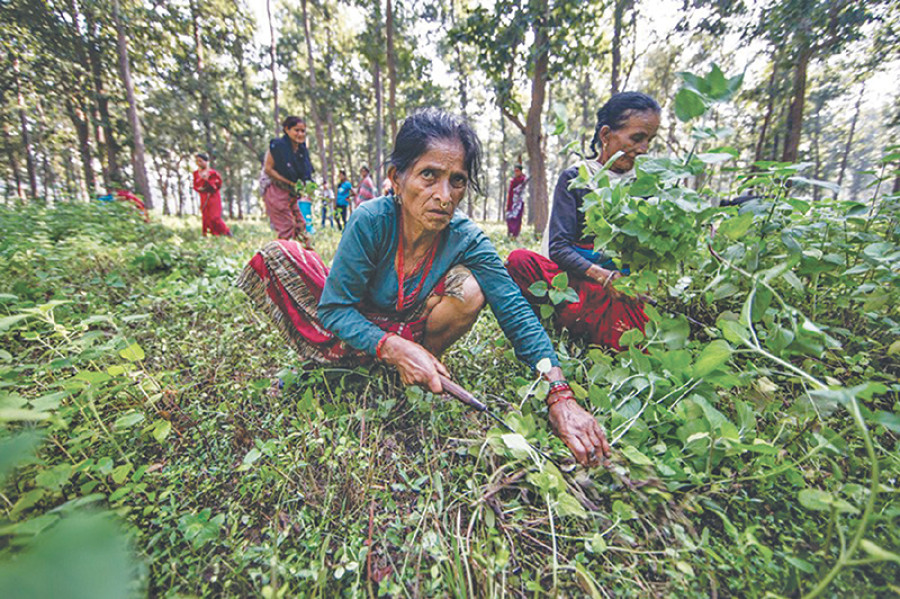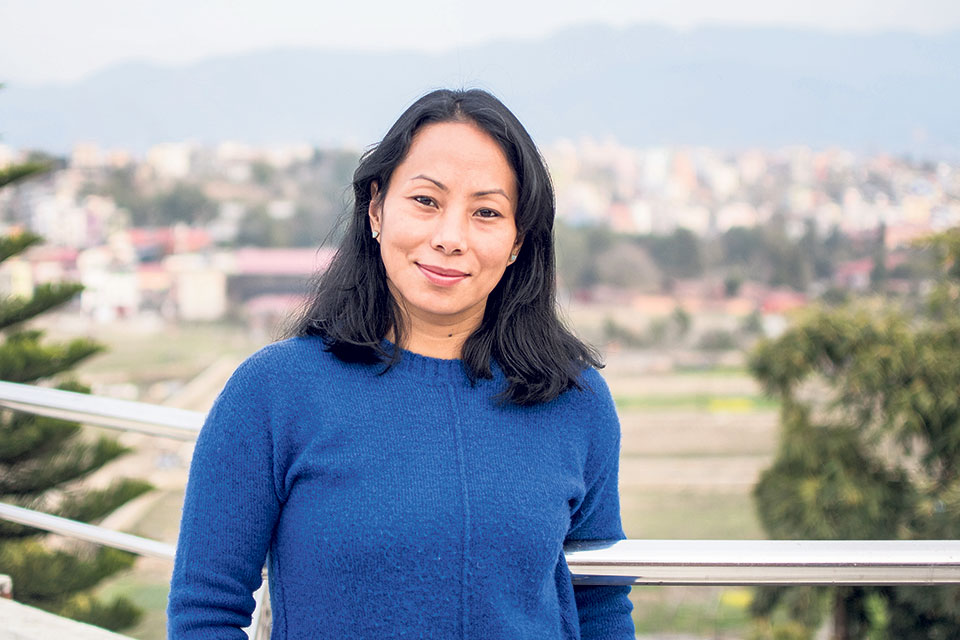Opinion
Top-down and centralised
The elite’s hold over land, forests and rivers continues in federal Nepal
Shradha Ghale
The process of establishing protected areas in Nepal has always been top-down and heavy-handed. The National Parks and Wildlife Conservatio (NPWC) Act allows the government to declare any site a protected area, with no obligation to consult the local and indigenous communities who live in that area.
Ramming it through
Banke National Park, established in 2010, is the youngest national park in the country. The government’s unilateral decision to establish the park in 2010 faced huge opposition from local forest user groups. In Balapur village of Rapti Sonari rural municipality, locals formed a struggle committee, submitted a memorandum to relevant authorities and held protests to oppose the government’s decision, to no avail. Balapur lies between the canal of Sikta irrigation project, a “national pride” project, and Banke National Park. Squeezed between these two gigantic sources of national pride, the community of Balapur lives exposed to the daily threat of wildlife and seasonal threat of flooding.
Just as the locals had feared, the national park in Banke took over many forests on which they had always depended for livelihood. In Sikta village, the park appropriated the community forest that the locals had been using and nurturing since 1996. Before the area was declared a national park, villagers had planted trees in that forest, cleared overgrowth and made rules to limit grazing and resource collection. They had controlled forest fires and collected money from each household to employ a guard from within the community. “We spent so much time, labour and resources on protecting the forest,” said Manka Devi Pun. “But the national park snatched it from us. Now we need a paid permit even to collect grass and fallen wood from the forest.”
In Bardiya, the Geruwa River that serves as the western boundary of the park often changes course during the rainy season. As a result the park boundary gets extended and fields and fallow lands that belong to locals fall inside the boundary, making them off-limits to their owners. The NPWC Act states that a buffer zone resident whose house or land falls inside the park boundary as a result of flooding will be provided compensation. But none of the locals who have lost their land to the park have received compensation. Dashrath Tharu of Rajipur village said, “Since the river changes course almost every year, 12 bighas of my family’s land is now inside the park. We have the land certificate, we even pay land tax, but we can’t use our own land.”
Rhetoric of participation
The creation of buffer zone committees is often hailed as a major step towards democratising protected area governance in Nepal. But despite the rhetoric of participatory management, governance of protected areas remains highly centralised. In most national parks/reserves in the Tarai, the buffer zone management committee is unrepresentative and ineffective. It is extremely rare to find women or members of marginalised groups on these committees. While a few Janajatis serve as token representatives here and there, Dalits are virtually non-existent.
Moreover, the excessive powers of park authorities have reduced buffer zone committees to toothless institutions. The chief warden serves on the buffer zone management committee as a member secretary. A second-class government officer, the warden nonetheless has the power to overturn decisions made by elected representatives. There is a provision for allocating 30-50 percent of the park revenue for community development, but buffer zone representatives can only carry out development activities approved by the warden. The warden can inspect the account of the management committee anytime he wants, and even dissolve the committee if he so decides. So much for “participatory” management.
Increased penalisation
The fifth amendment of the NPWC Act has increased fines and jail terms for violations of park regulations. Fine for fishing has been increased from Rs2500 to Rs5000, a hefty sum for poor locals. Cash-strapped families have to take out loans to pay fines.
Many are arrested for minor infringements and trapped in court cases that drag on for years. On 27 January 2015, a passenger bus bound for Kathmandu accidentally hit a monkey in the Bardiya National Park area. The driver, Khadga Bahadur, was arrested and held in the park’s custody for 12 days. The transport workers union collected money and released him on bail. Since then he has been travelling all the way from his hometown Dhangadhi to Thakurdwara every month to report to the park authorities. He has no idea how long the case will go on.When I saw him at the park office, he was apologising to the warden for appearing one day late.
As Shanti Sonaha said, “There are no laws to prevent wildlife attacks on humans, but if a human kills a wild animal even by accident, then he’s done for.”
The poor as pawns
People from historically marginalised communities bear the brunt of the national parks regulations. It is worth asking why those entrusted with “protecting” nature, from the environment minister, to the chair of the National Trust for Nature Conservation, to the general secretary of the national parks department, to most of the park wardens, are all high-caste men, whereas those who get punished as poachers, thieves and trespassers almost always come from marginalised groups. In Chitwan National Park, Chepang, Kumal, Bote and Tharu are overrepresented in wildlife crimes. The Tamang make up the largest proportion of people arrested for wildlife offences in the Kathmandu Valley, according to a 2015 study.
In 2008 three local men (two Sonaha and a Magar) were jailed for their involvement in rhino poaching in Manau VDC, Bardiya. Locals say the men were mere pawns in the game of powerful smugglers. In addition to subjecting these men to fines and a ten-year jail sentence, the national park collectively punished the Sonaha community by cancelling their fishing license. One of the accused was finally released but the other two have been languishing in jail for seven years now. Their lives have been destroyed, their families fallen on hard times.
Meanwhile, the new amendment to the NPWC Act has provisions that blatantly promote commodification and commercialisation of wildlife. These provisions allow individuals and private sector entities to own and breed wild animals, as well as sell, distribute and export their body parts.
Continued Centralisation
The new constitution has placed all national parks and reserves under the jurisdiction of the central government.While this is the norm in many other countries, in Nepal national parks have historically been associated with large-scale dispossession of marginalised populations. In fact, as I write this, the army in Chitwan National Park has arrested two Bote fishermen from Nawalparasi for fishing in the Narayani River.
According to a senior WWF officer: “National parks…do not belong to the locals. Locals might have some role at the local level in securing and guarding the park but national parks have an international, regional, geo-political dimension. A Tharu from Chitwan cannot take the responsibility of upholding the international standards of Chitwan National Park.” WWF is one of the world’s largest conservation organisations. Its Nepal office provided both financial and technical support for environmental decision making during the constitution drafting process. It also supports the current parliamentary committee on the environmental protection.
Federal restructuring could have been an opportunity to redress historical injustices and address the longstanding concerns of local and indigenous communities in protected areas. But national park laws made during the autocratic Panchayat era remain fundamentally unchanged in the federal democratic republic of Nepal. To this day the land, forests and rivers of this country remain in the grip of ruling elite and thekedars while vast sections of the population struggle to scratch out a living from meagre patches of land. One can imagine the kind of ‘bikas’ and ‘sambriddi’ that will arrive in such a country.




 11.12°C Kathmandu
11.12°C Kathmandu










